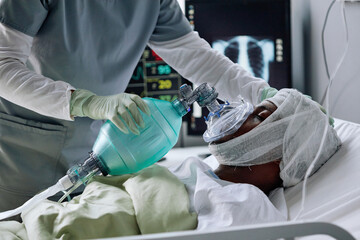Highlight Essential Skills Needed For Success In Hospital Roles
Hospital jobs continue to be a critical component of the healthcare system, providing essential services that keep communities healthy and safe. As we approach 2025, the healthcare landscape is evolving rapidly, with new technologies, patient care standards, and administrative requirements shaping the skills that medical professionals need.
If you’re aiming to secure or advance in Hospital Jobs, understanding the best skills required in 2025 is essential. This article will explore the key technical, interpersonal, and adaptive skills that hospital employers prioritize, helping you prepare for a successful and rewarding career.
Why Skills Matter In Hospital Jobs
Hospital jobs span a wide range of roles—from doctors and nurses to technicians, administrators, and support staff. Regardless of the position, the ability to perform effectively depends heavily on possessing the right skills.
In 2025, hospitals demand a combination of technical expertise, communication abilities, emotional intelligence, and adaptability to rapidly changing environments. Candidates who demonstrate these skills have a distinct advantage in securing competitive positions and thriving in their roles.
Top Skills Required For Hospital Jobs In 2025
1. Clinical And Technical Proficiency
The foundation of any Hospital Job is strong clinical and technical knowledge. For medical professionals like doctors, nurses, and technicians, expertise in diagnostics, treatment protocols, and patient care is paramount. As healthcare technology advances, familiarity with electronic health records (EHR), medical devices, and telemedicine tools is increasingly important.
For example, nurses should be skilled in administering medications, wound care, and monitoring vital signs, while radiology technicians must operate sophisticated imaging equipment with precision.
2. Effective Communication Skills
Hospitals are fast-paced environments where clear and compassionate communication can make all the difference. Staff must interact not only with patients but also with families, doctors, and other healthcare workers. Effective communication helps reduce errors, improves patient satisfaction, and enhances teamwork.
Whether explaining a treatment plan to a patient or coordinating care with a multidisciplinary team, strong verbal and written communication is vital for all Hospital Jobs.
3. Emotional Intelligence And Empathy
Healthcare professionals frequently encounter patients in distressing or vulnerable situations. The ability to understand and manage emotions—both their own and others’—is a key skill.
Empathy helps build trust and rapport with patients, which can lead to better adherence to treatment and overall health outcomes. Emotional intelligence also supports collaboration among hospital staff, improving workplace morale and reducing conflicts.
4. Adaptability And Problem-Solving
The healthcare industry is continually changing, driven by new diseases, medical discoveries, and evolving regulations. Professionals in Hospital Jobs must be adaptable, able to respond quickly to emergencies, unexpected patient needs, or changes in hospital protocols.
Problem-solving skills help staff analyze complex situations and make informed decisions under pressure. This flexibility is especially crucial in emergency departments, ICUs, and other high-stakes environments.
5. Teamwork And Collaboration
Hospitals function through the coordinated efforts of diverse professionals. Doctors, nurses, technicians, administrative staff, and support workers must collaborate to ensure seamless patient care.
Strong teamwork skills enable hospital employees to communicate efficiently, delegate responsibilities, and support one another. A collaborative mindset reduces errors, shortens hospital stays, and fosters a positive work environment.
6. Digital Literacy
With the ongoing digital transformation in healthcare, digital literacy has become a must-have skill in Hospital Jobs. This includes proficiency with hospital management software, electronic health records, telehealth platforms, and data privacy tools.
Understanding how to use digital tools securely and efficiently improves productivity and patient care. It also prepares hospital staff for future innovations like artificial intelligence and machine learning applications in healthcare.
7. Attention To Detail
In hospital settings, even small mistakes can have serious consequences. Whether it’s administering the wrong medication dosage or misreading patient information, attention to detail is critical.
Hospital employees must carefully follow protocols, document patient data accurately, and double-check their work to minimize errors. This skill is vital for clinical, administrative, and technical roles alike.
8. Time Management And Multitasking
Hospital jobs often require managing multiple patients, tasks, or responsibilities simultaneously. Effective time management helps staff prioritize urgent needs, meet deadlines, and avoid burnout.
The ability to multitask without compromising quality is especially important in busy departments like emergency rooms and surgical units.
How To Develop These Skills For Hospital Jobs
If you’re preparing for a career in Hospital Jobs, consider these strategies to build the essential skills:

- Pursue relevant education and certifications: Keep your clinical and technical knowledge up-to-date with continuing education and specialized training.
- Engage in communication workshops: Enhance your verbal and written skills through courses or on-the-job practice.
- Practice empathy: Volunteer in patient-centered roles to build emotional intelligence and understanding.
- Stay adaptable: Embrace change and seek opportunities to solve complex problems in clinical settings.
- Join team-based projects: Participate actively in multidisciplinary teams to improve collaboration skills.
- Enhance digital skills: Learn to use healthcare software and digital tools efficiently.
- Focus on detail: Develop habits of thoroughness and accuracy in documentation and procedures.
- Manage your time: Use planners or digital tools to organize tasks and improve productivity.
Conclusion
The healthcare sector is evolving rapidly, and so are the expectations for professionals in Hospital Jobs. To succeed in 2025 and beyond, candidates must develop a blend of clinical expertise, interpersonal skills, and adaptability.
Focusing on these key skills not only improves your chances of securing hospital positions but also enhances your effectiveness and satisfaction in these critical roles. Whether you’re a fresh graduate or an experienced healthcare worker, prioritizing these skills will prepare you to meet the challenges of modern healthcare and contribute meaningfully to patient care.